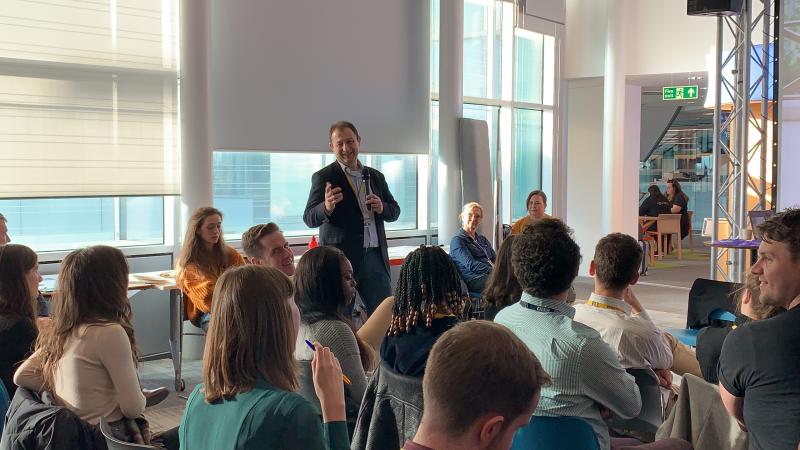
mgr partner Paul Simnock gives presentation to young journalists at the BBC
17/02/20
Paul Simnock, mgr’s media and entertainment specialist, presented a masterclass for young journalists at the BBC’s Broadcasting House in Portland Place on Saturday 8 February 2020. The event was hosted in conjunction with the John Schofield Trust, a charity made up of mentors who run mentoring schemes for journalists at the start of their career.
Paul’s presentation, entitled Don’t give all your money to the tax man, explained the different tax and financial implications for journalists depending on whether they are employed or self-employed.
The pros and cons of being employed or self-employed
Paul started by setting out the pros and cons of each, including the fact that employees receive their pay net of tax, and are entitled to holiday and employment rights. In contrast, self-employed freelancers are responsible for filing their own tax payments, paying VAT (where appropriate) and have to cover all their own costs. However, tax relief on expenses is more generous if you are self-employed than if you are employed.
He then explained how someone’s employment status would be determined with effect from 5 April 2020, and the criteria that need to be considered by the organisation engaging the journalist.
Useful tips if you are self-employed
As well as giving an overview of the technicalities of the different rules that apply depending on your employment status, Paul gave useful tips for anyone who is self-employed, including:
- the importance of engaging a good accountant
- the advantages of using the best software and apps available to make your life simpler such as Xero and Receipt Bank. He said that using this software saves the journalist and their accountant huge amount of time (and accountancy fees) and makes filing returns and producing accounts much simpler than it was a few years ago
- the importance of putting aside a fixed amount each month to cover your tax and VAT liabilities. Paul recommends putting 25-30% of your income into a separate account, depending on your tax rate
- having a separate business account where all your income and expenses go into and out of so that it doesn’t get mixed with your personal money
- gathering your financial information as early as possible to make organising your tax returns easier.
Tax rates and key dates
Paul gave an overview of the current tax rates and the dates on which tax and national insurance are payable. He explained that for the tax year to 5 April 2019, a freelancer would pay tax in three lumps: a payment on account on 31 January 2019, a second payment on account on 31 July 2019 and the balance on 31 January 2020.
Working overseas
Finally, Paul gave some advice to those working abroad. He suggested making sure you consult an accountant with expertise in handling international tax to avoid the risk of double taxation.
The presentation was extremely well received, and Paul was delighted to offer guidance and support to the next generation of professionals.
If you have any queries regarding tax and your employment status, please email Paul Simnock.




